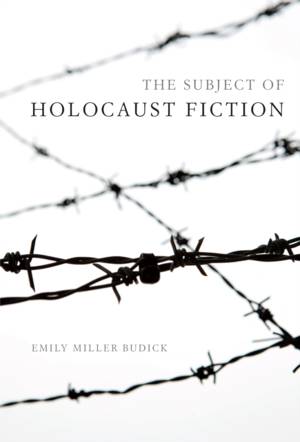
- Afhalen na 1 uur in een winkel met voorraad
- Gratis thuislevering in België vanaf € 30
- Ruim aanbod met 7 miljoen producten
- Afhalen na 1 uur in een winkel met voorraad
- Gratis thuislevering in België vanaf € 30
- Ruim aanbod met 7 miljoen producten
Omschrijving
Fictional representations of horrific events run the risk of undercutting efforts to verify historical knowledge and may heighten our ability to respond intellectually and ethically to human experiences of devastation. In this captivating study of the epistemological, psychological, and ethical issues underlying Holocaust fiction, Emily Miller Budick examines the subjective experiences of fantasy, projection, and repression manifested in Holocaust fiction and in the reader's encounter with it. Considering works by Cynthia Ozick, Art Spiegelman, Aharon Appelfeld, Michael Chabon, and others, Budick investigates how the reading subject makes sense of these fictionalized presentations of memory and trauma, victims and victimizers.
Specificaties
Betrokkenen
- Auteur(s):
- Uitgeverij:
Inhoud
- Aantal bladzijden:
- 266
- Taal:
- Engels
- Reeks:
Eigenschappen
- Productcode (EAN):
- 9780253016263
- Verschijningsdatum:
- 20/05/2015
- Uitvoering:
- Hardcover
- Formaat:
- Genaaid
- Afmetingen:
- 152 mm x 229 mm
- Gewicht:
- 557 g

Alleen bij Standaard Boekhandel
Beoordelingen
We publiceren alleen reviews die voldoen aan de voorwaarden voor reviews. Bekijk onze voorwaarden voor reviews.











